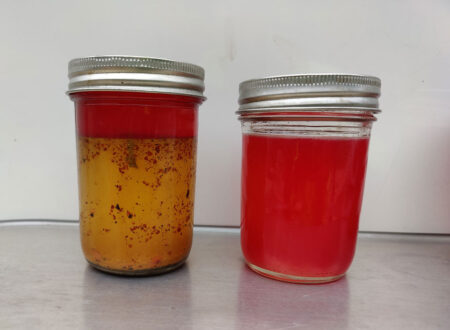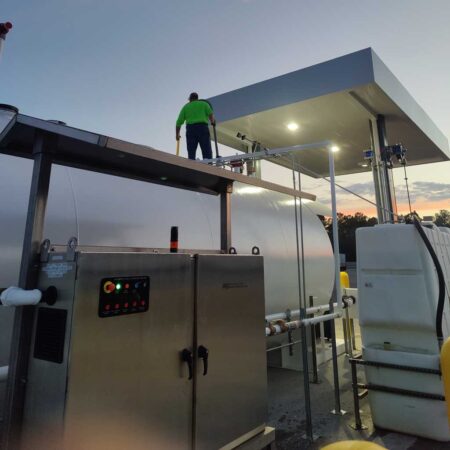
Fuel Tank Contamination
It may sound surprising, but there are microorganisms that can actually survive in fuel. The most common types of fuel tank contamination come from:
- Water – at some point, fuel will have some level of water contamination that occurs due to vapor or just the passing of time. A simple test can show whether or not fuel has been contaminated by water. Industry-standard should show no more than 30 parts per million of water present in the fuel.
- Particulates – due to rust, dust, pollen, or other airborne contaminants that can enter the fuel tank when open or if sealed improperly. Most particulates can be seen with the naked eye and will float or settle to the bottom of the fuel tank.
- Microorganisms – such as yeast, fungi, or other bacteria that are always present in air and water can contaminate fuel as soon as it leaves the refinery. Certain tests are available to determine whether or not there are microorganisms present in the fuel tank.
- Other Fuel – there are times when other petroleum products can taint fuel or mix, such as gasoline. While this should not occur with diligent protocols and high standards, it is a risk.
There are many industry standards in place to help prevent severe contamination of fuel. While most of the dangers of fuel contamination result in loss of equipment, ruined engines, or damaged fuel tanks – other dangers are also present.
Contaminants can be the result of something in the air or environment which can affect the health and safety of all who work around it. Ensuring the safety of the work site and providing the latest safety training to employees should be a priority – as contaminants can hurt the environment and the people in it.
Signs of Contamination
There are signs that you, as the business owner or job foreman, can look for when it comes to fuel tank contamination.
- Frequently clogged filters or filters needing replacement
- Dark or hazy coloration
- Debris floating atop the fuel
- Sludge (can either be on top of the fuel or stuck to the sides of the fuel tank
- Increased exhaust or smoke
- Corrosion of the fuel injectors
- Bad odor from the fuel tank
Preventing Fuel Tank Contamination
Fuel tank contamination can – and does – happen even for the most diligent business owners. Even fuel that comes straight from the refinery already has a small level of contamination (usually this sparse amount will not cause problems). Here are some storage tips that the Hart team recommends to prevent further or severe contamination of your fuel tanks:
- Ensure that caps and lids are replaced after every use and secured tightly
- Use only new or frequently maintained fuel tanks for storing fuel (you can purchase or rent high-quality fuel tanks and safety add-ons like containment berms directly from Hart)
- Keep the fuel tank away from temperature extremes
- Ask Hart about additives that can be added to fuel tanks to keep contamination at bay
 Treatment for Contaminated Fuel Tanks
Treatment for Contaminated Fuel Tanks
Ideally, contaminated fuel should be disposed of by following industry standards and EPA guidelines and uncontaminated fuel should replace it. However, the cost of doing this can be thousands or even millions depending on the scale of the contamination.
Depending on the reason for the contamination – and the extent – there are methods for treating your fuel tank to ensure you have the highest quality of fuel for the job. If contamination is left untreated, not only is the cost extensive, but it can ruin vehicles and equipment. Ensuring your fuel is pure should be a priority for all business owners.
Fuel Polishing and Fuel Tank Cleaning
As always, you can expect the best service when it comes to fuel polishing and fuel tank cleaning when you trust it to Hart. Our team is skilled in ensuring your fuel tanks are clean and well-maintained. Schedule a consultation with our team today to make sure your fuel tanks are in tip-top shape.
 Treatment for Contaminated Fuel Tanks
Treatment for Contaminated Fuel Tanks